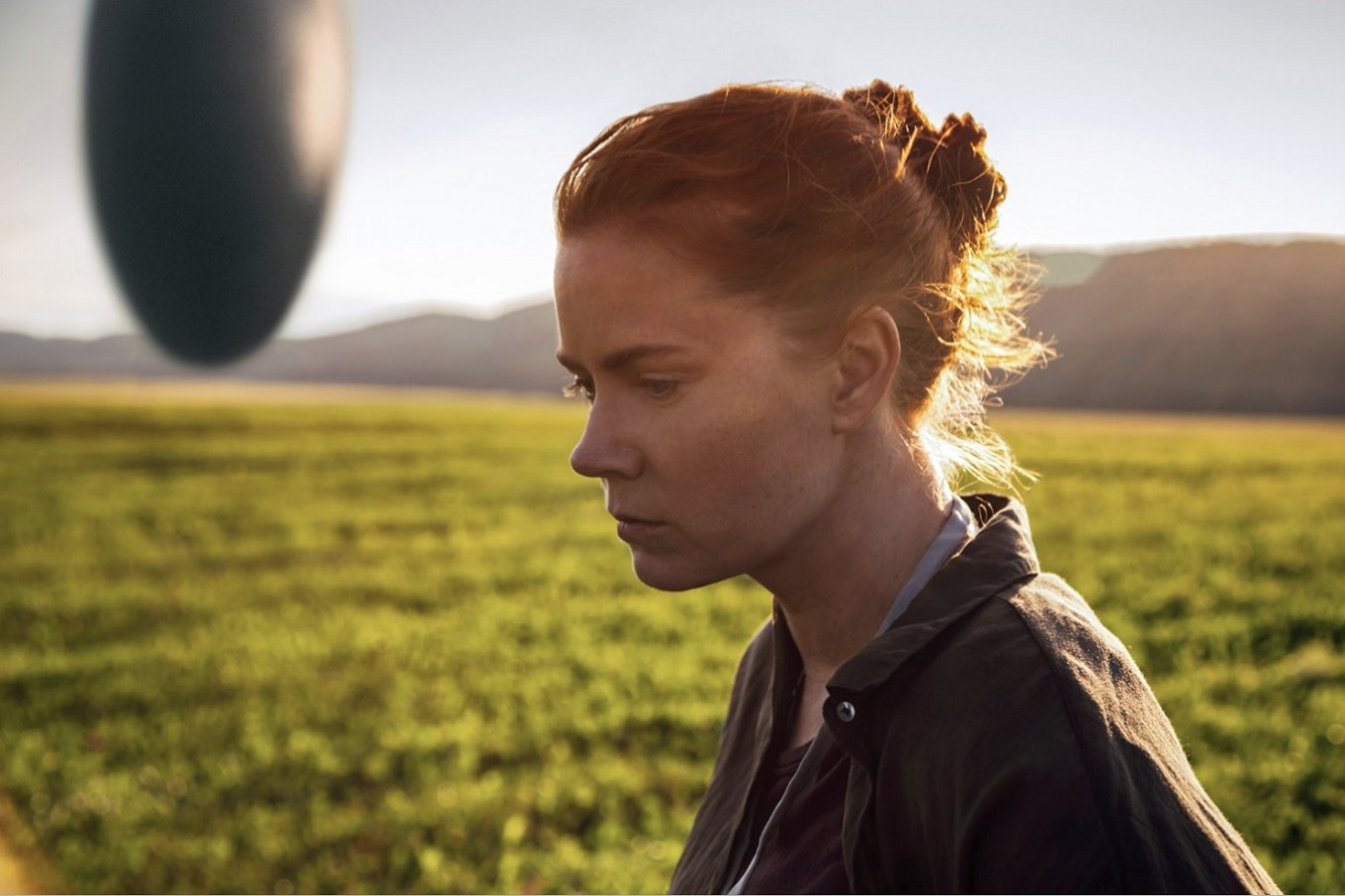Popular Reads
Top Results
Can't find what you're looking for?
View all search resultsPopular Reads
Top Results
Can't find what you're looking for?
View all search results'Arrival' demonstrates entertainingly balanced sci-fi and human nature
Change text size
Gift Premium Articles
to Anyone
I
f people are looking for a sci-fi film that requires thinking—and is likely to leave them mind blown even after the movie has ended, then Arrival would be a good choice. In fact, it will still be good entertainment even for those who don’t really favor such a genre.
Arrival sets out with Louise Banks’ (Amy Adams) narration about her daughter. Starting with a very melancholic mood, viewers are given an introduction to Banks and what her story might be.
After the prologue ends, the scene switches to Banks, which is that of a university lecturer. One day, her session was disrupted after a student asked her to turn on the news during her class, which reports 12 unidentified terrestrial objects having landed on earth.
The whole world, with no exception of the United States, is busy trying to figure out what measures to take. "What are the foreign beings’ motives?" "What should we do about the objects?" As people are trying to figure things out, they encounter a problem: no one understands what the terrestrial creatures are saying. This is where Banks, who is a linguist, gets involved, accompanied with Colonel Weber (Forest Whitaker) and scientist Ian Donelly (Jeremy Renner).
(Read also: 'Lazarus': Bowie's grand farewell)
The idea of trying to understand aliens is a quite refreshing approach. Instead of creating a story about aliens being a threat to humans, director Denis Villeneuve (Incendies, Prisoners) and screenplay writer Eric Heisserer (Final Destination 5, Lights Out) were able to throw a big, yet commonly forgotten question to the audience: what should humans do towards something they know nothing about?
The film is more than just a fresh idea. The 116-minute long movie, which was adapted from fiction short story Story of Your Life by Ted Chiang, unfolds in a way that would require its audience to always remain focused. Its layered sequence may throw some into confusion, but it will then continuously deliver visible jabs as the story progresses.
Although it is highly decorated with sci-fi aspects, Arrival is sprinkled with humanly actions and choices that will linger as a key message. Moreover, it proceeds with scenes directed photographically by Bradford Young, which shifts easily from panoramic beauty to high-tech settings in a daze. (kes)











